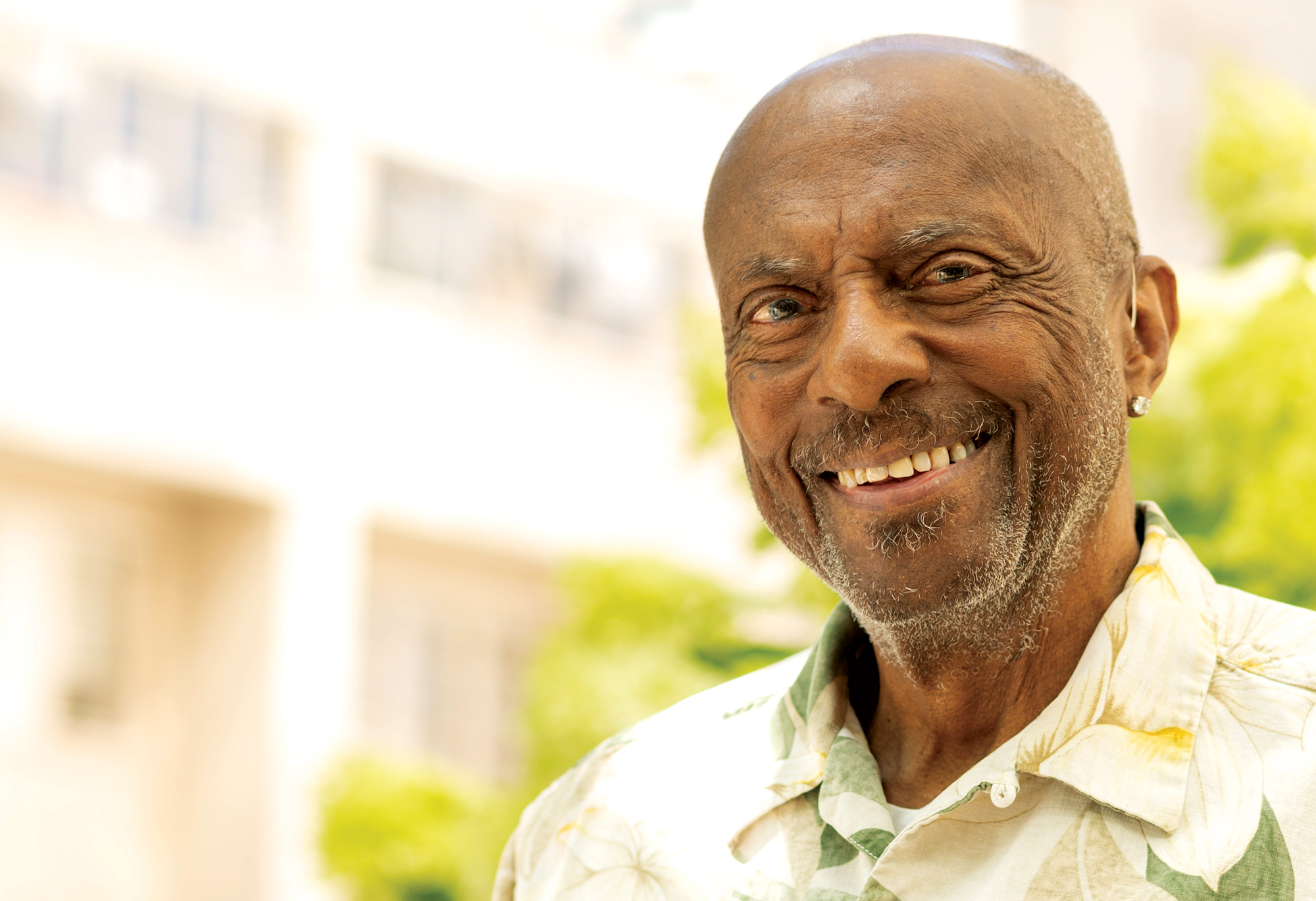A passion for public health A passion for public health A passion for public health
Health-care pioneer George Counts has dedicated his career to battling disease and inequities.

Health-care pioneer George Counts has dedicated his career to battling disease and inequities.
The first time George Counts came to the University of Washington, it was to start his career.
The year was 1965, he had just finished medical school and was seeking an internship and residency in infectious disease. When he heard from the UW that he would be welcome as a fellow, “I was ecstatic,” he says. “It was one of the best programs in the country.” He worked in a lab for two years and developed an affinity for Seattle with its “drizzly rain and occasional mountains,” as he describes it.
The second time he came, in 1975, it was as an associate professor. He delved into teaching, patient care and research, succeeding in the competitive realm of academic medicine. After 10 years of focused work, he became the first Black full professor in the UW School of Medicine.
But that was just the next step in his journey to international recognition in the field of infectious disease. Counts left the UW in 1989, early in the AIDS epidemic, to lead the nation’s clinical trials program for HIV drug treatments.
From the headquarters in Bethesda, Maryland, he developed a national network to conduct the clinical trials, expanding the outreach in testing to include Black people and women. Responding to the dearth of women and non-white participants in clinical studies, Counts also created and led the institute’s Office of Research on Minority and Women’s Health.
In 1999, Counts led a national Centers for Disease Control and Prevention campaign to end syphilis. “The irony that the agency that conducted the infamous Tuskegee syphilis study would now be working to eliminate the disease with my involvement was patently obvious,” Counts says. Over 40 years, without informed consent, Black participants in the Tuskegee study were either not treated for syphilis infections or treated with toxic drugs like arsenic and mercury. The study is now considered one of the most heinous and racist research projects in American history. While the CDC campaign that Counts led did not succeed in eradicating syphilis, it did significantly reduce incidence for both adults and infants.
Counts helped ensure that the term “informed consent” carried the same meaning around the world.
The third time Counts came back to the UW, in 2002, he joined UW colleagues running the HIV Vaccine Trials Unit at the Fred Hutchinson Cancer Research Center. As a senior adviser for special populations, he committed not only his expertise and experience, but also his interest in bioethics. The unit was conducting worldwide clinical drug trials, and Counts helped ensure that the term “informed consent” carried the same meaning around the world.
“It has been a long and wonderful journey,” he says. Counts was among the first epidemiologists around the country who recognized the growing need to improve infection control in hospitals. He helped develop the discipline and expand the Association for Professionals in Infection Control and Epidemiology, which focuses on preventing outbreaks of infection among hospitalized patients. In 1983, he was the organization’s president.
Throughout his career, Counts has addressed health and health-care inequities. In 2020, two younger doctors highlighted Counts’ roles and influence in an article in the national Journal of Infectious Diseases, recognizing his decades of effort advancing diversity and inclusion throughout the field of medicine. They pointed to his efforts to bring more Black and brown doctors into the field of epidemiology and to his pushing colleagues and national health organizations to include more women and minorities in their clinical trials. Even in retirement, Counts continues the battle against infectious disease. As COVID-19 was spreading through the Northwest, he met with an advisory board daily to control the spread of the virus in his retirement community.
For all his work helping individuals, communities and his field of medicine as well as for his teaching, mentoring and vision, the Infectious Diseases Society of America Foundation honored Counts with the Walter E. Stamm Mentor Award in 2020. Now the organization of 12,000 physicians, scientists and public health experts has named a conference room in his honor: The Dr. George W. Counts Executive Conference Room at the organization’s headquarters in Arlington, Virginia.